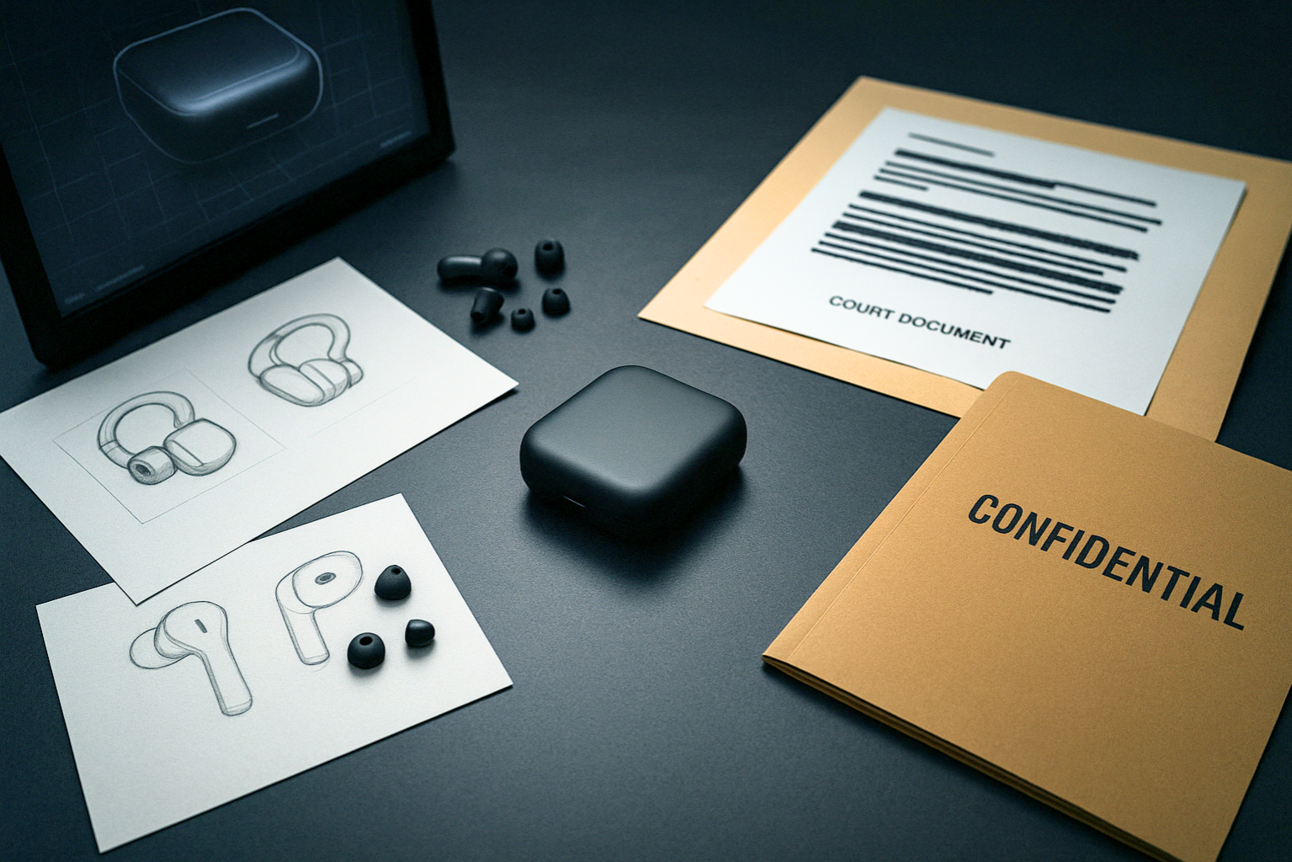
With a new court filing, Openai and Jony Ive’s hardware startup IO revealed their early efforts to develop AI-powered consumer devices.
The update follows yesterday’s news that Openai has removed all promotional material related to IO’s $6.5 billion acquisition, and is a Google-backed startup that complies with a court order related to the trademark lawsuit filed by IYO and has developed custom molded earpieces.
Documents submitted as part of the case rarely look at the company’s investigation and early stage plans. Openai has denied the allegations and challenged the case.
Your device may not be headphones or wearable
Legal submissions from Openai and IO show that companies spend the past year investigating in-ear hardware, buying over 30 sets of headphones to study the market. In addition, internal emails reveal that executives from both companies met with IYO to test custom earpiece technology.
Despite that interest, the products currently under development appear to be completely different. Tang Tan, IO’s chief hardware director and longtime Apple executive, said in a court declaration that the prototype mentioned in the company’s launch video “is not an in-ear device or a wearable device.” He pointed out that the design remains unfinished and cannot be sold or promoted for at least another year.
The physical design remains largely unknown. In the company’s launch video, Sam Altman said he was developing a “family” of AI devices with a variety of features, but Jony Ive described the first prototype as “completely capturing” his imagination.
Altman previously described the device as “the third device.” It is intended to complement smartphones and laptops. In an internal meeting reported by the Wall Street Journal, Altman told Openai staff that the hardware is either pocket-sized or sitting on a desk, fully aware of the user’s surroundings.
“Our intention with this collaboration was to create products that go beyond traditional products and interfaces,” Altman filed in court on June 12th.
Openai’s lawyer added that the company is evaluating multiple device formats, including desktop-based, mobile, wireless, wired, wearable and portable design.
Behind the meeting with IYO
According to case documents, Openai and IO showed early interest in IYO’s technology. In May, product Peter Welinder’s Openai VP and IO Tang Tan met with IYO CEO Jason Rugolo at IO’s Jackson Square office in San Francisco. During the meeting, they tested IYO’s in-ear devices, but according to a follow-up email, the demo failed to meet expectations.
Tan said he agreed to the meeting in favor of a former mentor (veteran Steve Zadesky applied), and claimed that he took precautions to avoid exposure to his own information, including asking his lawyers to review the materials. He also said he rejected multiple proposals from Rugolo, including a $200 million acquisition offer and a potential developer kit partnership after evaluating IYO’s offering.
Additional emails suggest that IO staff have considered insights from the IYO ecosystem. Marwan Rammah, now a former Apple engineer at IO, has proposed to purchase a 3D EAR scan database from IYO’s partner EAR Project to better understand ergonomic designs. It remains unknown if a transaction occurred.
Despite the interaction, IO co-founder and chief product officer Evans Hankey declared that the company is not working on custom-molded Earpieces.
The court filing still provides the clearest window into Openai and IO’s early stage hardware plans, revealing how uncertain and unfair those plans are yet to be found. What began as speculation about AI-powered earphones now seems completely different. Additionally, although the device takes less than a year from the market, legal disputes have already forced Openai to remove public content and defend its intent in court.
That’s important. It is unusual and informative for a secret, brand-sensitive company like Openai to be forced to explain the direction of its products under oath. The submission suggests that the company is still actively investigating various form factors, and its prototype is not as good as public hype suggests. It is not yet clear whether this is a strategic secret or the necessary backtracking, but the tone of the filing company is particularly cautious.
More broadly, this legal dispute highlights how competitive and legally at risk of AI hardware races. Companies like Openai, Apple, Meta, Google are not only competing to define the next interface, but are also migrating to each other’s hardware turf. That overlap could lead to more intellectual property disputes as startups and tech giants fight for design and market share.
For now, filing shows that Openai’s vision for mass market AI devices is still evolving. And while legal battles may slow the public’s development, it offers the public what one of the most influential AI companies thinks about the future of human computer interaction.
A glimpse into Openai’s hardware strategy suggests that the first AI device will not be worn. This will be a whole new thing.
Editor’s Note: tHis article was created by Alicia Shapiro, CMO of AINEWS.COM, and provided support for writing, images and idea generation from AI assistant ChatGpt. However, the only final perspective and editorial choice is Alicia Shapiro. Thank you to ChatGpt for your research and editorial support in writing this article.


